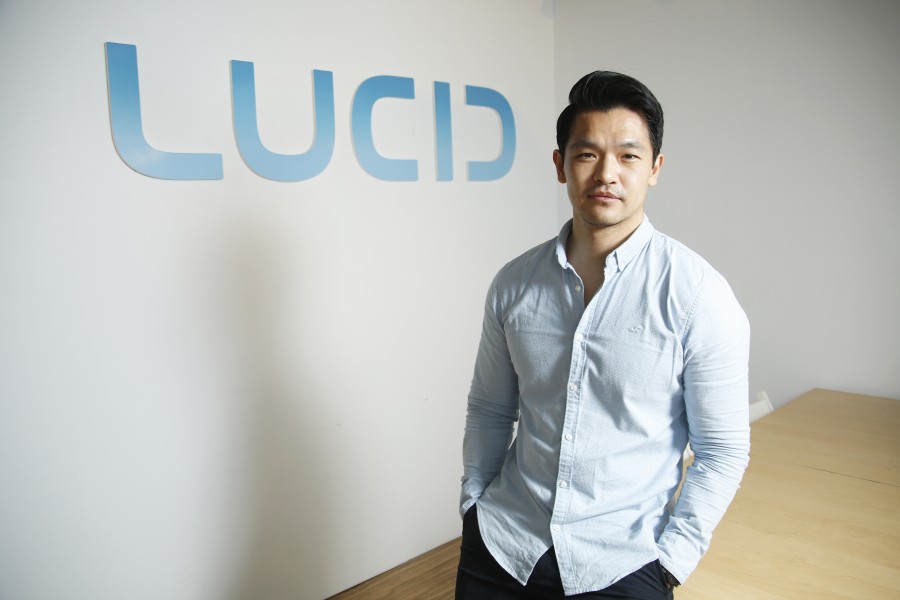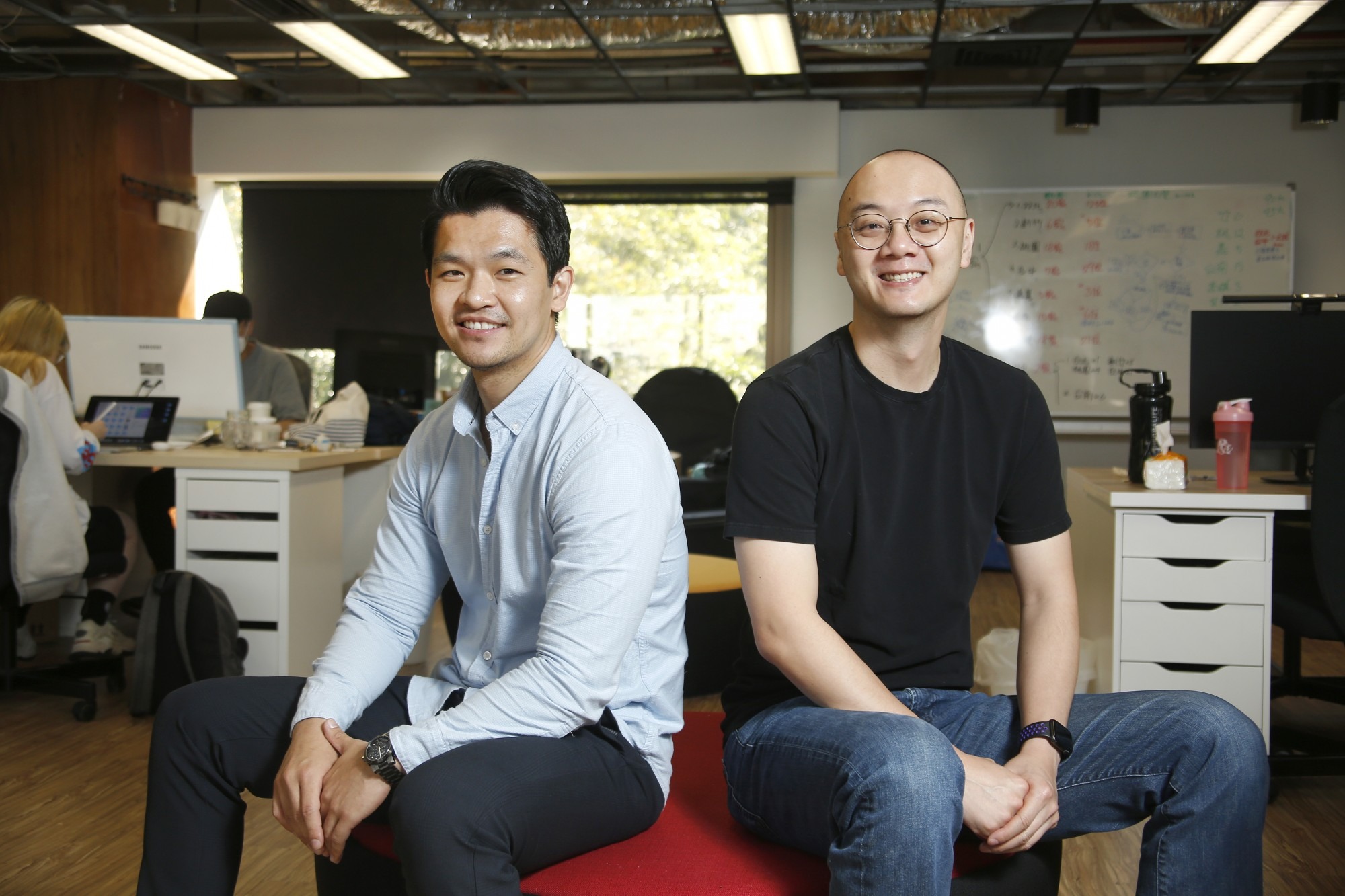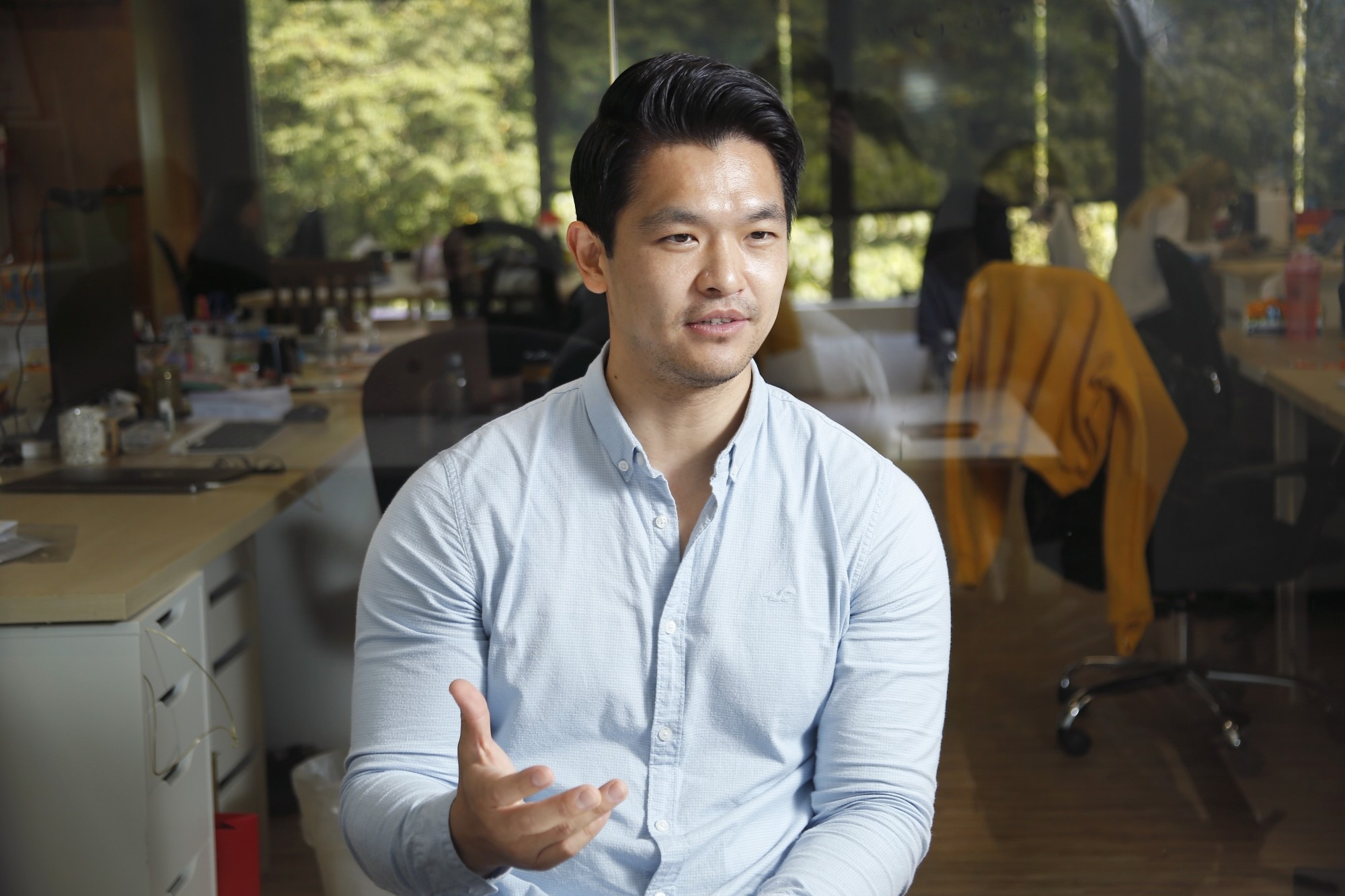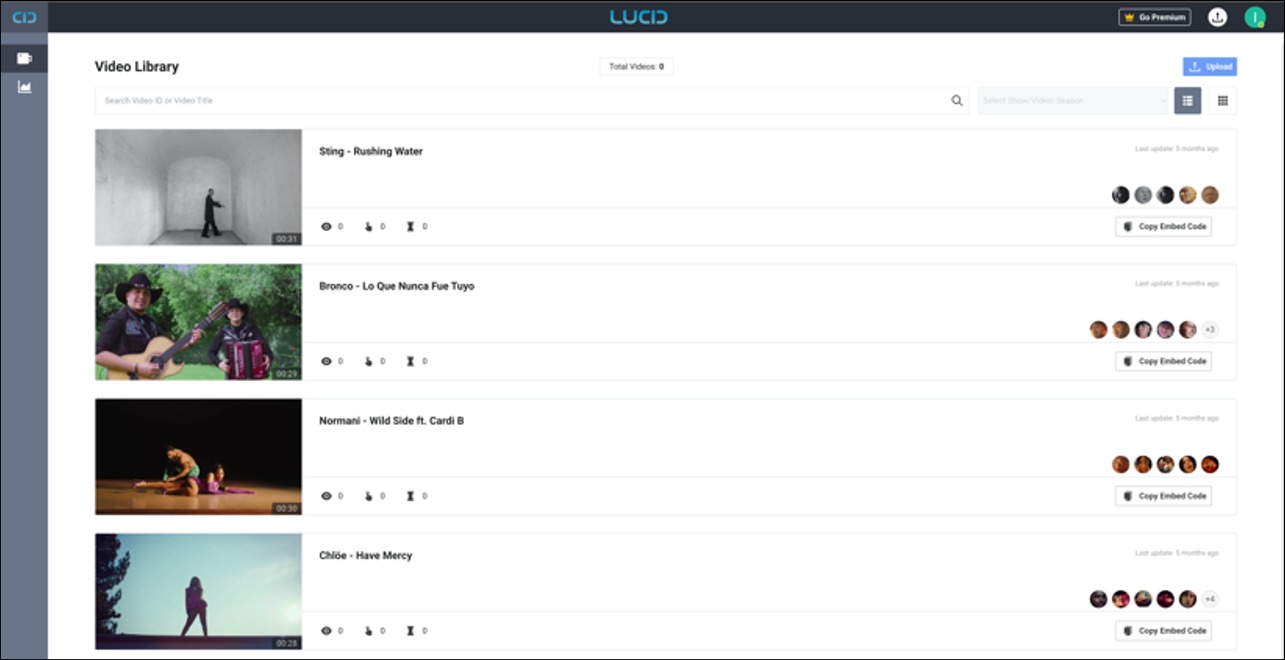Pivoting for success: How a hardware startup went from building cameras to delivering AI solutions to millions

Despite the success of its first product launch, LucidCam, Han quickly realized he needed to pivot his business to software solutions if he wanted Lucid to survive in the fiercely competitive startup environment. "My company vision has always been the same — bringing people closer together by creating and sharing immersive viewing experiences — but we needed to adapt to find an economical and sustainable business model.”
Han Jin, a serial entrepreneur based in Taiwan on a Gold Card Visa, is here to build the smartest AI in the industry. He is the co-founder and CEO of Lucid, an AI vision startup that helps businesses leverage the power of advanced technology to analyze, understand and recommend the best video content to engage with users across all platforms.
The Chinese born German has been recognized with numerous accolades for his work and entrepreneurial spirit — Forbes 30U30, Gold Stevie Awards for Entrepreneur of the Year 2018, Silicon Valley Business Journal 40U40, to name but a few — but it hasn’t been a straightforward journey for Han, who initially set out to focus on hardware business with the goal of building AI-powered cameras. Despite the success of its first product launch, Han quickly realized he needed to pivot his business to software solutions if he wanted Lucid to survive in the fiercely competitive startup environment.
Earlier this month, we got to sit down with Han to talk about the opportunities and challenges he faced to build a startup from the ground up and how he pivoted from hardware to software while remaining true to his vision.

LucidCam, the first VR180 3D camera for consumers. / Photograph: Meet
Turning his startup dream into reality and earning a coveted spot on ‘Forbes 30 Under 30’
Han’s dream of having his own startup came to him when he was studying towards a Masters degree in Engineering at UC Berkeley. “Being a student there, you got the opportunity to hear from a lot of entrepreneurs, founders and success stories. It was a very supportive and inspiring environment where you’d have moments where you catch yourself thinking: ‘Why can’t I be the next big thing?’”
With his degree he went into product management and operations in technology and went on to work at flash memory manufacturer Sandisk for 3 years as a product manager in the cameras department. He was fascinated with camera technology so he started to think about how he could build a powerful camera, capable of creating immersive 3D experiences, the same way our eyes see the world.
But back then, cameras were not yet powerful enough to generate 3D content so when he founded Lucid in 2015, he first needed to build his own hardware that would have the level of processing power he required.
He was still based in the U.S. at that time when he heard about Garage+, a global incubator for startups in Taiwan, so he applied for its Global Startup Programme and came to Taiwan to seek out opportunities. He demoed at Meet Taipei, the largest tech startup trade show in Asia, and started to form his industry connections with manufacturers in Taiwan which led him to getting his first investment for his startup.
By building strong connections and raising enough capital, Han launched LucidCam, the first VR180 3D camera for consumers, and shipped thousands of units to Amazon, Best Buy and other major retailers. This successful launch was even recognized by Forbes which featured him on its ‘30 Under 30’ list under consumer technology.
Setting up shop in Taiwan to build a strong software development team
But a startup story isn’t all sunshine and rainbows. Raising capital for a hardware startup is difficult as Han begins to explain why he needed to pivot his business into the software side of things.
“Our first product was a great success but to build the next iteration of the camera, you will need to raise millions of dollars in capital again because you’ve already spent all your funds building the first one. This investment cycle proved to be really demanding. So I started to think that maybe it was time to focus on software solutions because GPUs in every device such as our phones were becoming more and more powerful, so I didn’t see the need of building my own hardware anymore. My company vision has always been the same — bringing people closer together by creating and sharing immersive viewing experiences — but we needed to adapt to find an economical and sustainable business model.”
The traveling back and forth to Taiwan over the years took its toll on Han and he decided to set up an office in Taiwan in 2018. That’s when he met Jonathan Liao at Taiwan Tech Arena (TTA), who is the founder of Futuerward and director of the Gold Card project, and suggested to Han to get a Gold Card Visa which has many benefits for foreign professionals.

Han Jin with Jonathan Liao, Project Director at the Taiwan Employment Gold Card Office / Photograph: Meet
What is it like to set up shop and run a startup in Taiwan? “There’s an advantage of building a strong and agile team in Taiwan because of the great talent here and that’s what we did when we transitioned to software development,” says Han.
One thing that Han pointed out about the talents here in Taiwan is that they excel in execution and implementation of projects. “Areas like customization and customer engagement, Taiwanese are really good at it. Americans, on the other hand, I find do well in breakthrough research, sales and marketing. So we currently have a CTO based in the U.S who focuses on research.”

Han Jin talks about the highs and lows of his entrepreneurial journey / Photograph: Meet
Overcoming the challenges of changing the business model and recruiting new talent
However, when you pivot your business you can’t assume your employees will all be onboard with the new direction. “You need different talents when you go into software. Even though our company vision never changed, transitioning into a software business had its challenges because you just don’t know how everyone on your team will feel about it.”
Speaking of how he recruited new talent for software development, Han said: “When you’re shifting your business, it’s important to have new strategies on how to recruit new talent and know how to assess if they're the right people for the company.”
Another major challenge Han faced was how to convince customers that you’re good business and show investors your commitment. “You have to be very clear about your business model. Shifting your business means you have to impress stakeholders by showing that you can learn about a new space more quickly than everyone else. And you have to emerge as an expert — being able to do that is hard because you have to make a lot of effort in order to learn faster and deeper than everyone else.”
“You can't be fixated with just one direction,” as Han continues to discuss the learning curve he went through. “Look at Slack for example, when it decided to pivot that’s when it took off.” But even though being flexible is important in running a startup, Han also added that if you do decide to pivot or shift your business direction, you have to keep in mind that it needs to be well-reasoned. “You need to back up your assessment and decisions with data and research to show you really know what you're doing and how you’re moving your business in the right direction.”
The race is on to build the smartest AI brain in the industry
By pivoting to software, Lucid is now a digital content platform that leverages AI to help businesses manage and scale videos.
Han gave us a demonstration of Lucid’s AI system in his office in Taipei, showing how it can learn to recognize faces, actions and even speech in videos. By analyzing all the data presented in the video, the platform edits and finalizes different video clips for customers to choose from. “Our AI can generate different topics for a user to choose from, for example, ‘Conversational’, ‘Action’ or ‘Romance’ and many other topics, and our platform can edit videos according to the chosen topic.”
How does all of this help businesses? “We consume content so fast now we have a content supply and demand mismatch in the market. So if you’re an influencer or a business who needs to create videos on a regular basis, we can help you save time and cost on manual editing and help businesses keep up with the consumer demand,” explains Han.

Lucid's portal interface / Photograph : Lucid
He goes on to mention how they’re helping one of their customers, VEVO, who has hundreds of thousands of videos that need to be edited fast, and quickly uploaded across platforms. “We work with them to edit and build engaging viewer experiences across their social media platforms. It's a very personalized and efficient editing service and because our AI can remember client preferences, the efficiency and the quality of our work will keep on improving as the client feeds more data into our AI.”
To date, Lucid already has over 5 million customers worldwide using their services and products. As its AI becomes more intelligent from the huge amounts of data it processes every day from video content, the startup is also analyzing the collated data to build better AI solutions that are made specifically for different scenarios and applications.
“We are now talking with many automation and manufacturing clients in Taiwan and training our AI to make sure it’s adaptable and suitable across different industries and production sites,” says Han.
Competing in a crowded market such as the AI industry is not easy, and Han believes the companies that can stand out from the crowd will be those who can build the most intelligent AI software. “It’s all about the race to build the smartest AI brain in the industry and that’s what we’re aiming for.”
〔Original :Meet Global〕
https://meet-global.bnext.com.tw/articles/view/47635